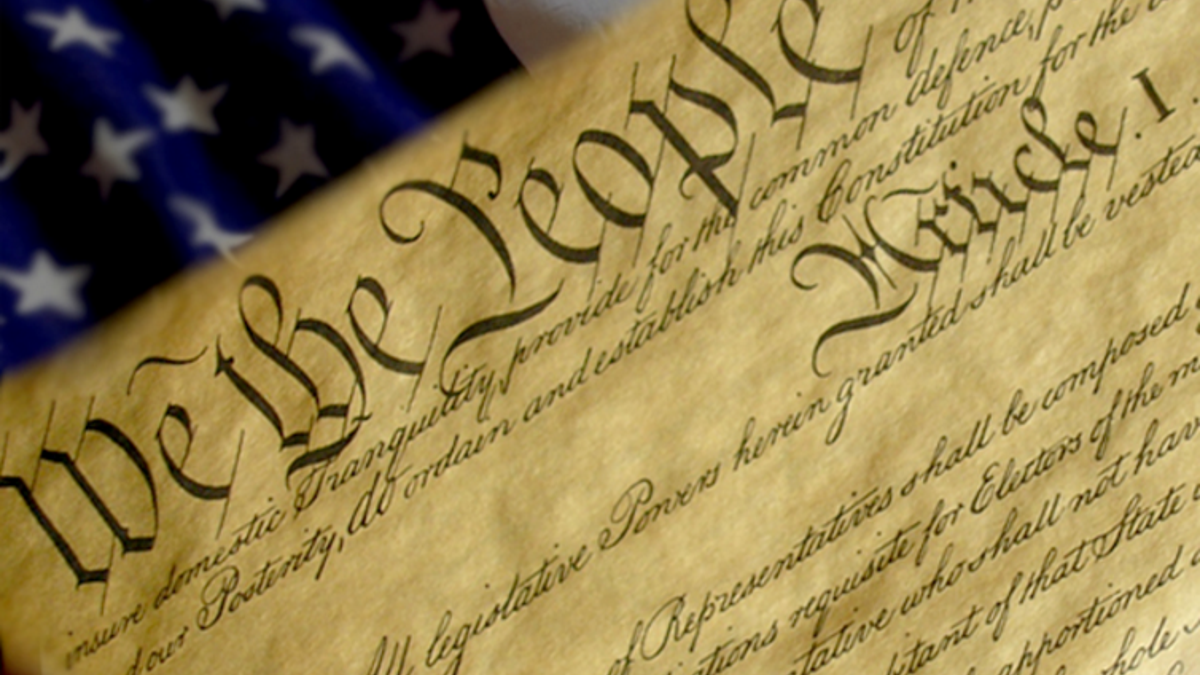
Another school year, another year of protests, “no platforming,” and other affronts to free expression on campus. Should we be surprised? Probably not. A majority of students now believe that “hate speech” – which is not defined under U.S. law and, thus, is subjectively conceived – does not deserve First Amendment protection.
And should we be surprised by that? Almost certainly not. There’s no reason we should expect college students to be able to make sound constitutional arguments when they don’t even know the content of the First Amendment. For more than a third of Americans can’t name a single right guaranteed under it.
You’d have to be living under a rock not to see that our social fabric is unravelling and that even basic civil discourse is becoming increasingly rare. There are a lot of explanations for why. Higher education in particular has come under fire, with childish campus behavior ranging from therapy sessions with Play-Doh, puppies, and coloring books to safe spaces to vandalism as specific bugaboos. But while college campuses have their issues, they are not the primary source of this civic unravelling.
The National Assessment of Educational Progress found in their last polling that only 18 percent of eighth graders performed at or above the “proficient” level in U.S. history. To be a good citizen in a democracy, especially in one as diverse and complex as ours, is to understand the underpinnings of what makes democracy possible. The quantity and quality of civic education in America’s public schools has declined over the past century, but really started to nosedive around the start of the 21st century.
Whether that’s due to heightened cynicism about America’s role in the world, a general increase in moral relativism, or other factors is a different issue. But now that a problem of practice has been diagnosed, specifically the lack of training in the fundamentals of governance, we can do something about it.
Let’s begin as a nation by celebrating Constitution Day. Most Americans have no idea that September 17 is a federal observance, one founded in the early-20th century to mark the day in 1787 that delegates to the Constitutional Convention signed the founding document in Philadelphia. And each educational institution that receives federal funds for a fiscal year is required to hold an educational program about the U.S. Constitution for its students.
I don't have data on Constitution Day itself – nor am I sure that such data exists – but I can tell you that in my own experience, it’s just an afterthought in most public high schools. When I was a first year teacher in Florida, I suddenly found that I had to teach about the Constitution in the middle of my first period when I had prepared completely different lesson plans. That's how little emphasis my department put on the observance. Of course, in the following years, I did better on my own accord.
Constitution Day is the only day of the year that most public high school students will ever have the opportunity to focus on the centerpiece of our nation’s founding. That means perhaps six hours in their entire secondary education tenure, the formative years before they’re granted their right to vote.
Simply put, if Constitution Day continues to be ignored – or teachers remain at sea on how to teach the subject matter – the last chance many students will ever have to explore and appreciate the most influential political document in their lives will have vanished.
In our current politically divided climate, the teaching of our nation’s founding remains the ultimate leveler. It’s reminds us all that it was in a time of turmoil that our experiment in self-government was launched. That we understood the nature of tyranny. That we were united by our desire to escape it through the expression of certain universal, self-evident truths. Quite simply, the teaching of the founding helps us transcend our own personal, polemical thoughts.
I’ve visited classrooms across the country, and I’m thrilled to say that the moral imaginations of students everywhere are set ablaze by lessons about the Constitution and the Declaration of Independence. Kids, particularly in public schools, are excited to discover that, contrary to what they’ve heard elsewhere, protections from government – rather than promises by it – are what make the American Dream possible. The fact that we have political documents that guarantee this is what really sticks.
If we’re too selfish or too busy to put just one day aside to contemplate our place in this blessed enterprise, then we should put aside our complaints about the behavior of college students. We should further suspend our disbelief when we discover that just 15 percent of Americans could correctly identify John Roberts as Chief Justice while 27 percent knew Randy Jackson was a judge on American Idol.
What’s said about sports can also be said about American public life: the fundamentals matter. We can’t possibly hope to repair our country, from contentious conversations in the grocery store to the poor conduct of elected officials, until we take seriously the framework – and the profound thought behind it – that allowed our country to prosper with freedom and opportunity unlike any other in human history.








































